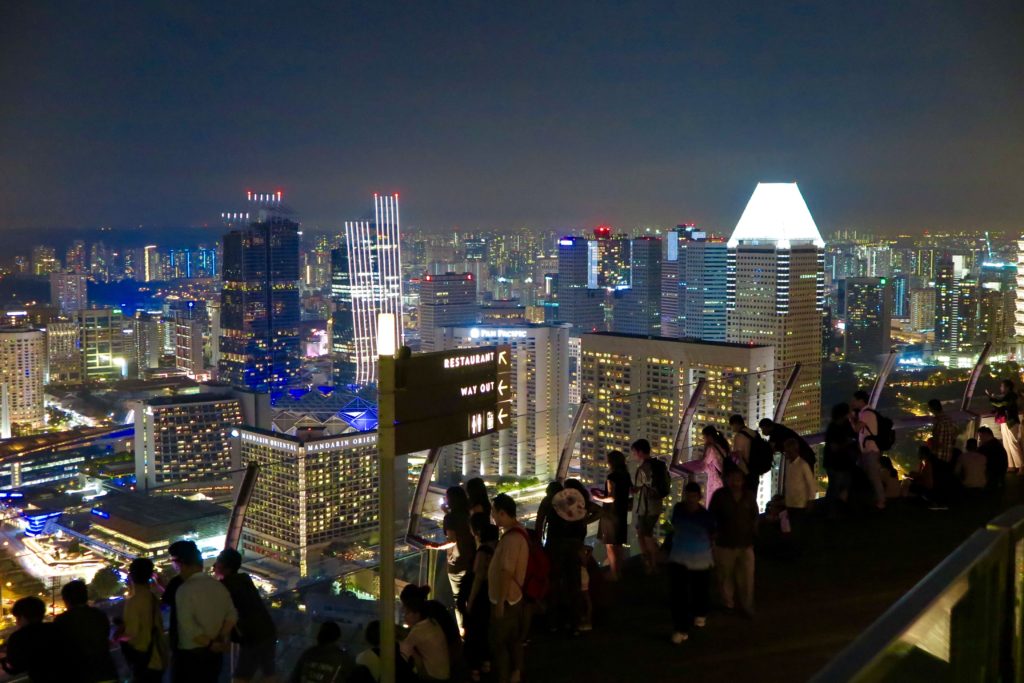
SINGAPORE — Michael Fay was a 19-year-old American student in May 1994 when Singapore authorities delivered four strikes to his bare bottom with a rattan cane. Arrested nearly a year before for stealing road signs and vandalizing vehicles, Fay’s caning prompted an international debate about the fairness of Singapore’s justice system and an outcry about its “police state” tactics.
I knew two facts about Singapore before I arrived here. First was the debate about Michael Fay and Singapore’s strict rules of personal behavior and its global knock as a “police state.” Second is that Singapore has one of the world’s best freshwater supply systems, based on recycling, rainwater collection, and desalination.
Those two elements of life here are tied together by the island nation’s insistence on achieving order, providing a secure way of life, and demanding that residents play their part. In return government here has delivered a magnificent city, full of architectural gems, rising from a garden of flowers, shrubs and trees, remarkably safe, packed with public transit, and where the water is plentiful and clean. If this is the contemporary version of a “police state” America and much of the rest of the world should take notice.
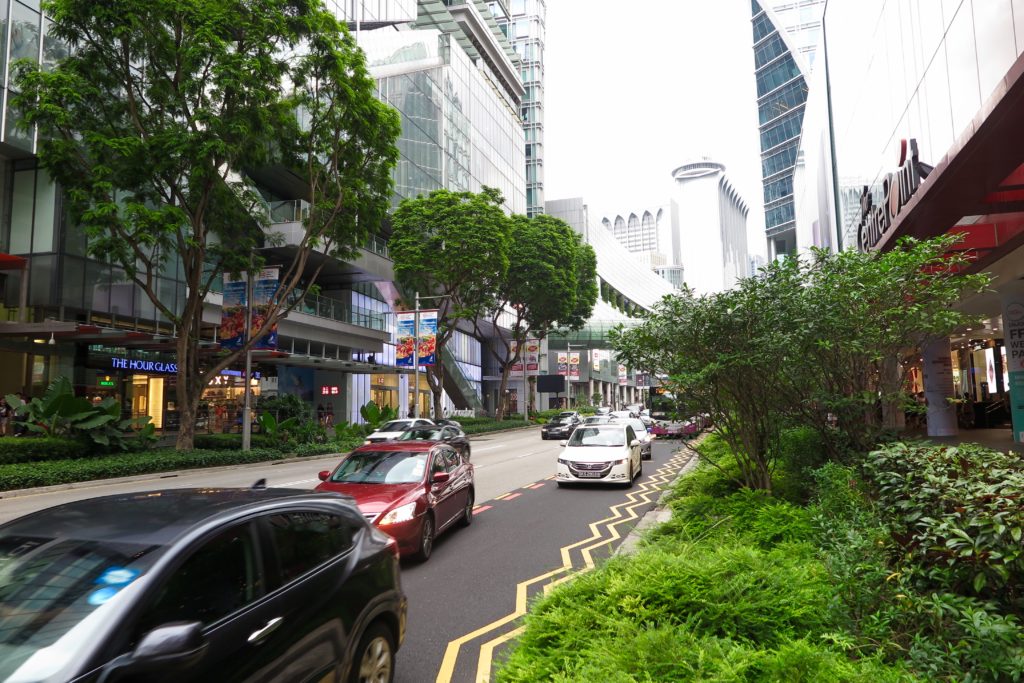
How Singapore achieved its prominence as one of the world’s greenest, cleanest, safest, and most prosperous cities is a story of consistently able leadership, clear goals, and cultural persistence.
The city was occupied by the Japanese during World War Two, a period of extreme violence and hardship, especially for Singapore’s Chinese residents. When the Japanese occupation ended the island endured various long sieges of violence and joblessness as a Malaysian state. In 1965, following wicked disagreements with Malaysia, Singapore became an independent nation that could finally focus on a national plan. The city’s development strategy, like almost every other nation’s, was designed to employ its people, end poverty, and improve the quality of life. Singapore just did it better and stuck to its goals.
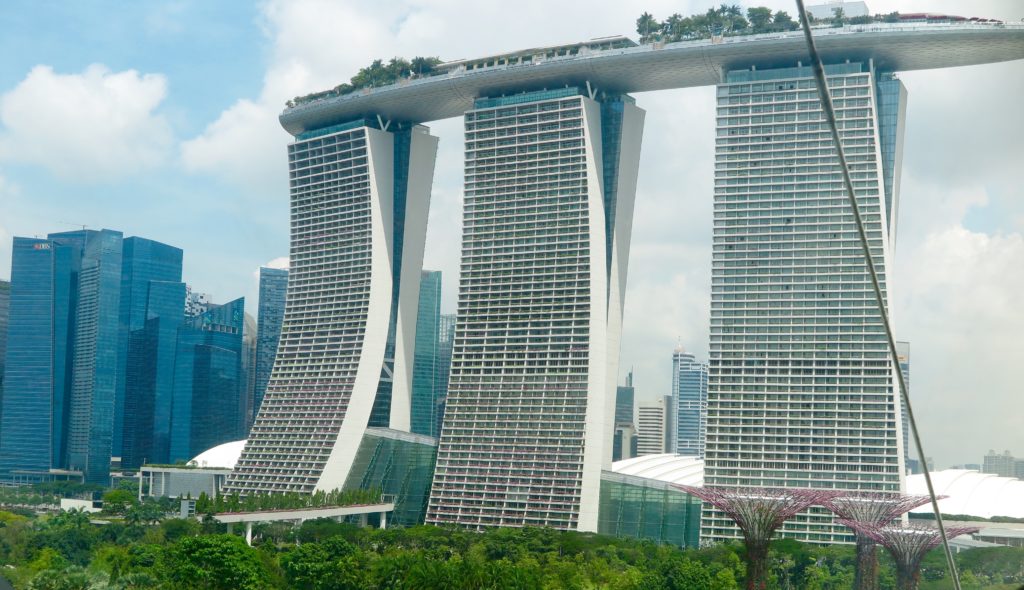
Water security was one feature of the plan. Environmental sustainability was another. A good portion of the island is protected forest that safeguards surface water reservoirs. High-tech manufacturing, excellent transit, housing, and education are priorities. Singapore’s streets are shaded in a beautiful urban forest. From a troubled backwater at the tip of the Malay peninsula, Singapore has become a jewel of Asia, not much talked about in the West, but highly regarded from Seoul to Tokyo to Sydney.
The trick to enjoying Singapore, as in any city, is to stay out of trouble. Good behavior, the kind taught by loving mothers, is rewarded by the good times visitors to Singapore have in the clubs, restaurants, parks, concert venues, and neighborhoods. Bad behavior can result in swift detention and punishment.
I didn’t see a single police officer during a two-day visit. But the police are said to be exceptionally diligent and tough. Michael Fay said the police beat a confession out of him, a charge that the police denied. The police also are aided by the bouquets of closed circuit television cameras that adorn lighting poles and are fixed in every public space.
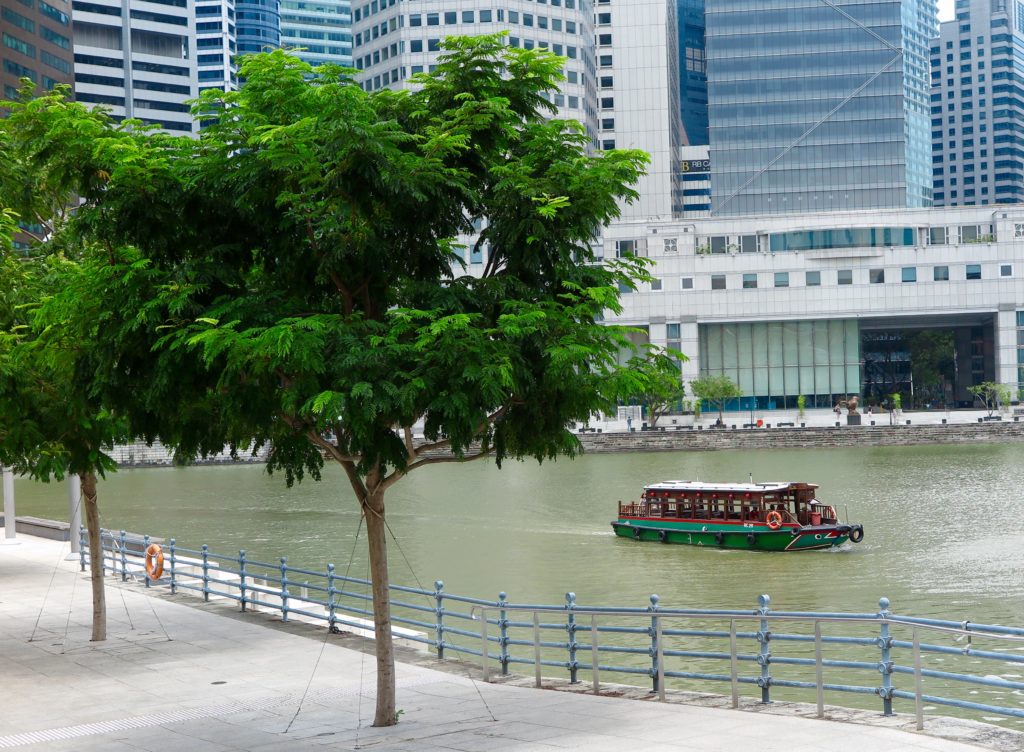
The cameras form part of the basis of the police state knock on Singapore. The other is the comparatively severe penalties for violating civic rules like jaywalking, spitting in the street, graffiti, speeding, littering, eating on the subways. Michael Fay was initially sentenced to four months in jail and six strokes of the rattan cane. President Clinton intervened and the prison time and caning strokes were reduced.
Guess what? People follow the rules. The city is a hive of well-behaved residents. And from the good cheer expressed in the restaurants and bars we visited, Singapore’s people don’t seem to be irritated at all. Let me just say that as an American who’s come to scan crowds at public events, the clear measure of security in Singapore is a welcome virtue. In this city of 5.5 million people, nobody scans a crowd for the guy with a gun.
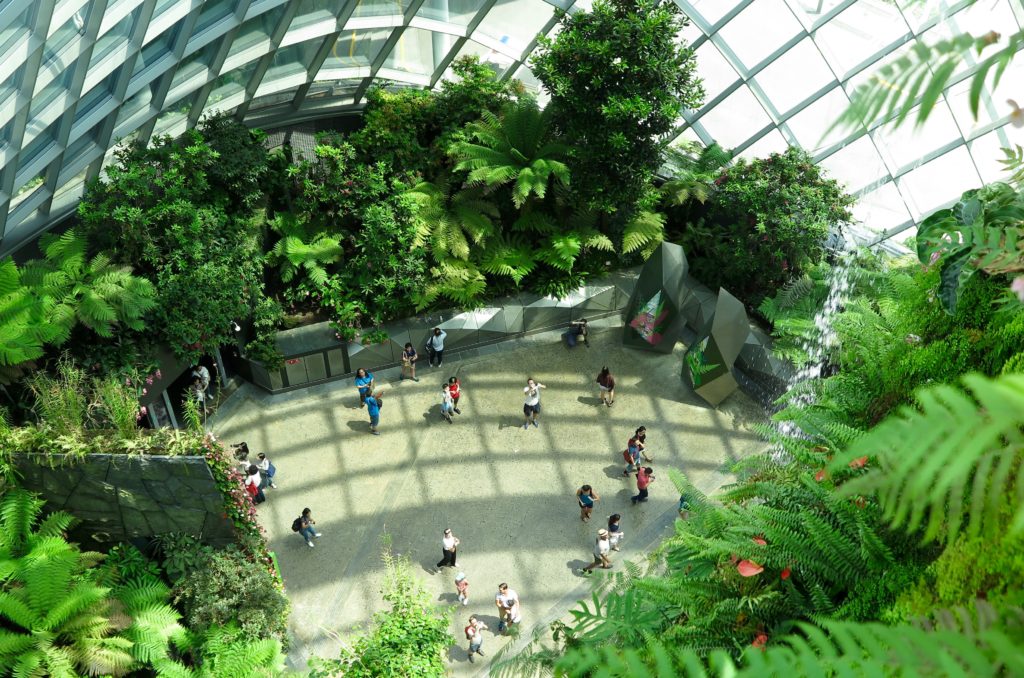
There’s no second amendment in the Singapore Constitution to aid gun manufacturers and gun-packing citizens who’ve lost their minds. Teachers aren’t armed. Massacres are unknown. Reason: Singapore has one of the toughest gun control laws in the world. Unlawful possession or carrying of firearms is punishable with imprisonment and caning. Using a gun while committing a crime is punishable with death. People support the law.
Those are the contours of a “police state” that many Americans would find undeniably attractive.
— Keith Schneider
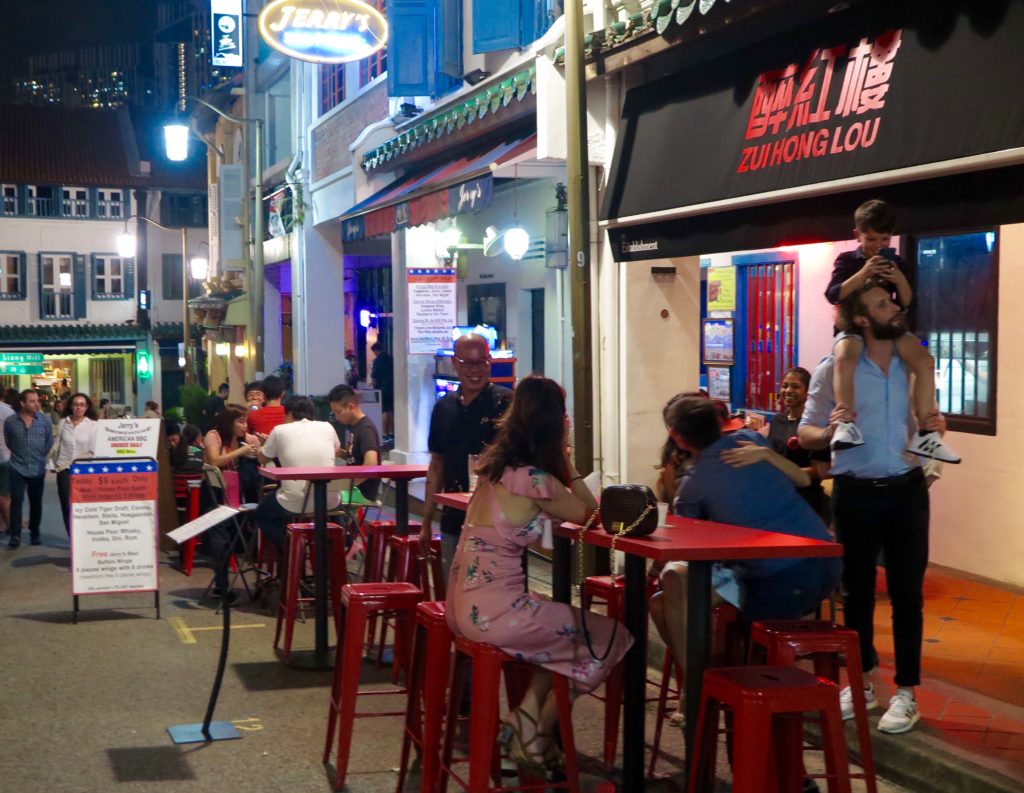
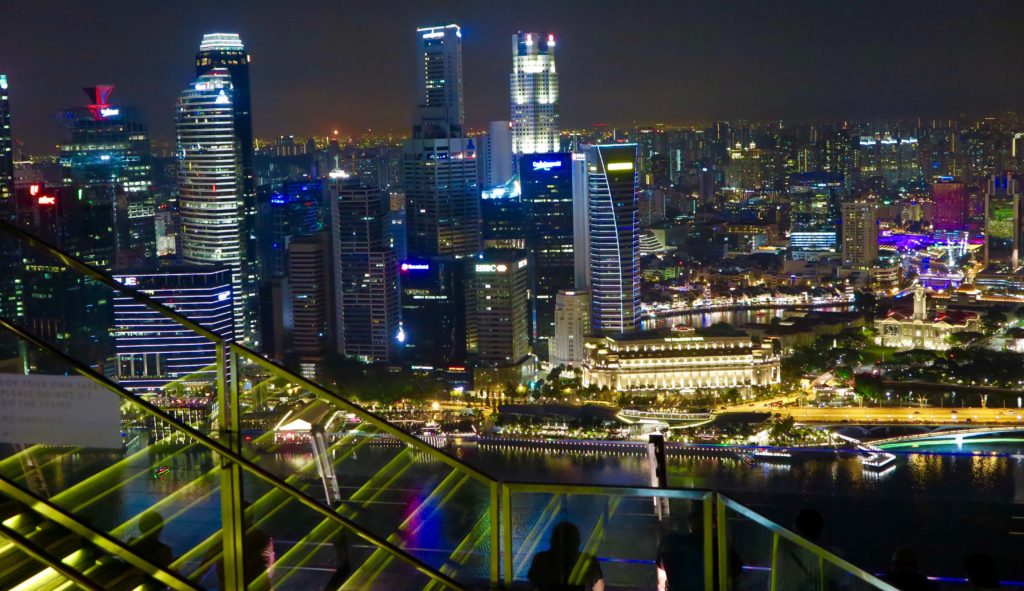
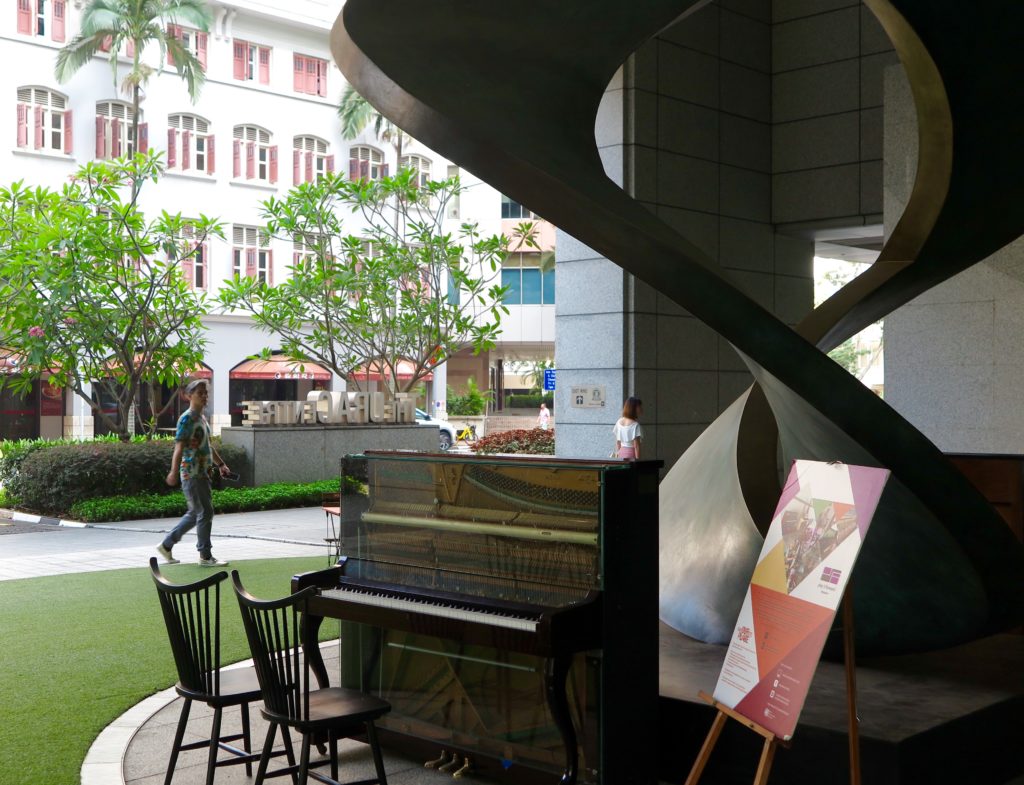
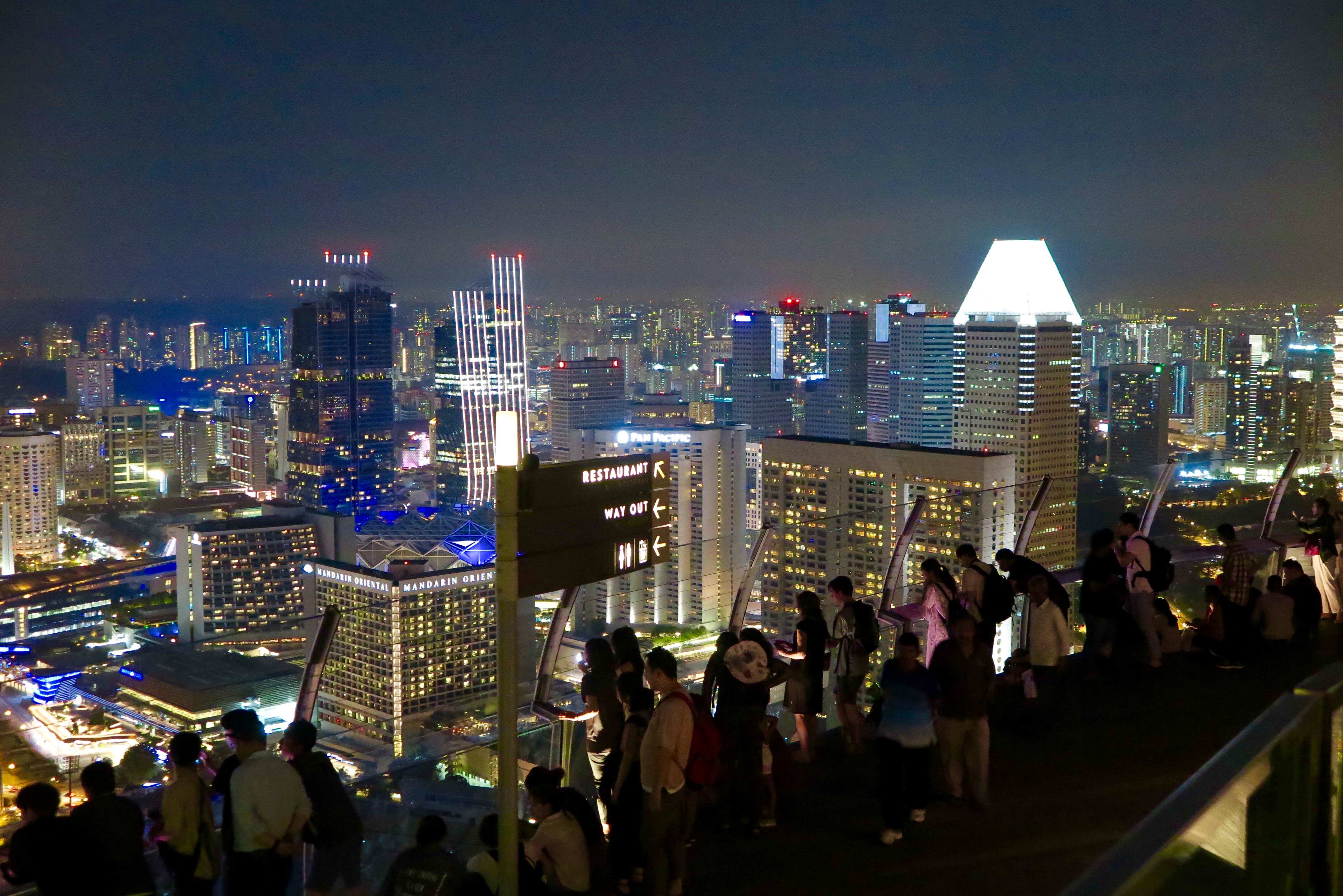

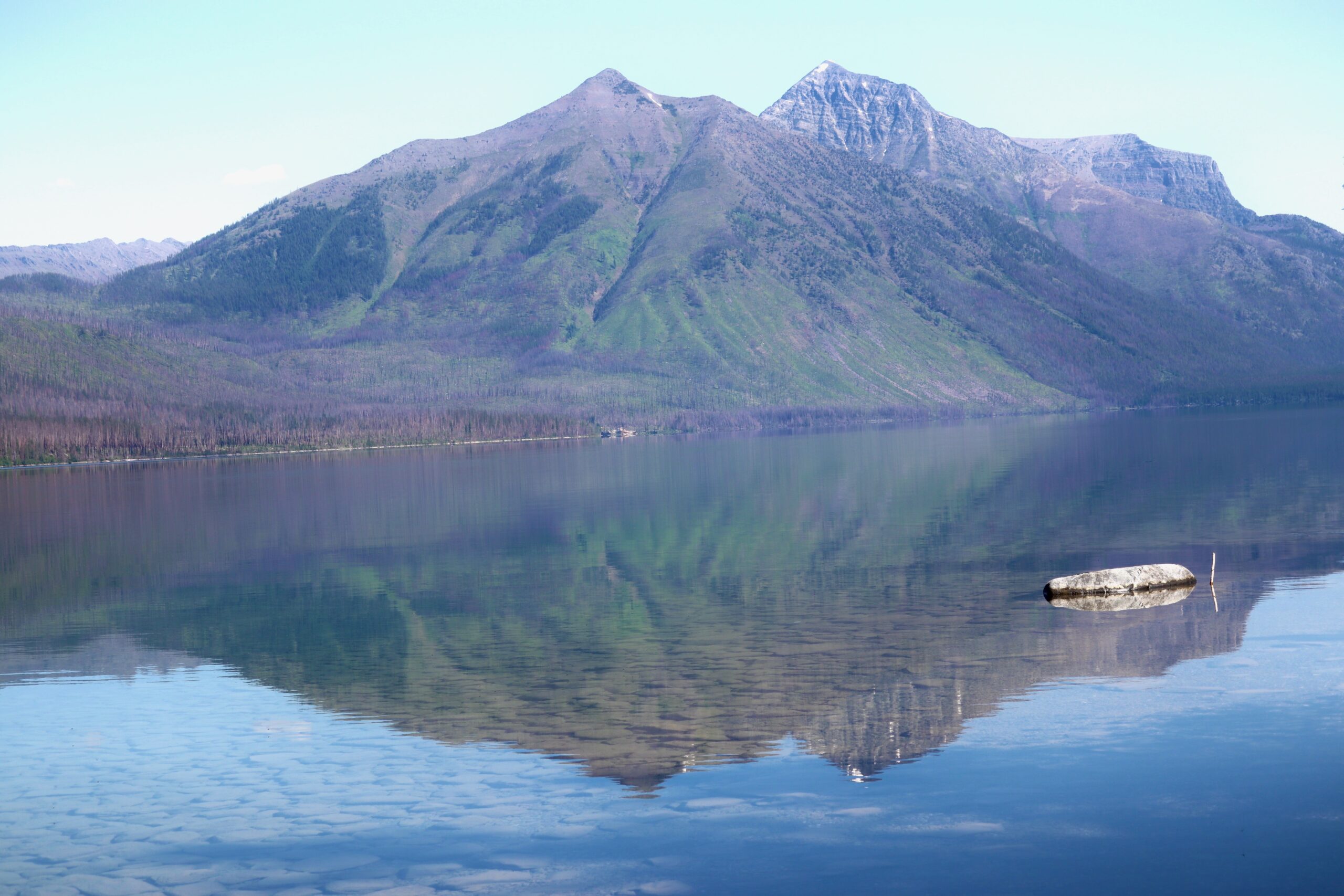
Opening minds once again my friend. Thanks!
Thanks Betsy. Love to you and Eric.
Sorry, but I find your post a bit one-sided and a bit factually inaccurate.
A few questions to help me understand your relationship and experience with Singapore:
-How long have you lived in Singapore? / Did you live in Singapore?
-Which area did you live? Was it an Ang moh enclave?
-Have you ridden the EWL or NSL during morning or evening commute?
-Have you swam in the water off Eastcoast or Pasir Ris?
-How many day to day interactions have you had with Singaporean government agencies?
-How many conversations have you had about the government, insanely rising cost of living, lack of meaningful “social safety net” for the elderly, yet the few hundreds of billiions of USD in reserves, (guestimate as the govt provides no transparency) with taxi uncles or in kopitiams? Or the vice like grip the government retains over your livelihood with govt ownership of +80% of all land (both commercial and residential). Let that sink in for a minute, most likely, where you sleep, shower, eat, travel to work, work, go out drinking, the park you walk in, etc, is owned and controlled by the government to do with as it pleases.
-How many conversations have you had with FDWs in regard to the opaque and some would say minimal rights they are provided by the government and for many the near indentured servitude in which they are “employed”?
-How many construction workers, the vast majority, say 99%, are “non-locals” have you talked to about the work and living conditions in which they are confined?
So, Yes, there are very few guns in Singapore and it is not a place that could be described as “the wild wild west” and as compared to many of its neighbors, Singapore is impressive from a commercial, shop til you drop mentality, however, it is far from the utopia you allude to with your references such as:
“Singapore’s people don’t seem to be irritated at all.”
“Singapore’s streets are shaded in a beautiful urban forest”
There are plenty of “rules” Singaporeans like to disregard as people do across multiple nations and they are not the obedient, do-gooders you seem to allude to.
That there is no second amendment is accurate; there also is really no freedom of the press as it is primarily an extension of the govt or chooses to only provide flattery of the govt, minimal gay rights (it is illegal for men to engage each other in sexual relations), minimal workers’ rights as in a non government involved labor movement, not a whole lot of free speech, and not really an independent judiciary. (you can ask all the bankrupted political opposition leaders about these last two as they were sued for libel by LKY and other govt officials over the years which were upheld by the courts). The PAP/Singapore government is judge, jury, executioner, and most likely, your landlord and banker.
Not to paint the picture of a complete dictatorship, but it is an autocratic, single party ruled island with roughly the geographical size of Chicago’s city limits, with about 3.5M “locals” and 2M “non locals” (rich, white collar workers, typically in finance, or poor blue collar workers in construction, FDW, or other jobs Singaporeans find too demeaning to do). So 5.5M total, that was born out of British colonial rule and though there is glitz and glam, the remnants of a colonial, feudal society are still the cornerstone of the society that Singaporeans have “voted” (another whole topic of conversation for the uncles in the kopitiam) for in the Disney-like democracy that has been created.
Lastly, the backwater you reference was in 1818 when Raffles first arrived and over the course of the last ~200 years Singapore has grown in the the glitz fest that it is now and as portrayed in “Crazy Rich Asians”; however, it is a bit of a misnomer to allude to give all credit to the current government and political party, which are synonymous in most Singaporeans’ eyes, which has ruled prior to Singapore being kicked out of the Malaysian Federation in 1965.
In my view, as someone who has done all the things I questioned you about, to call Singapore a “police state” maybe a bit strong (point of fact, there are 87 cameras, I have counted them, just on the outside of my local MRT station. Do they make me feel safe?, not one bit, quite the opposite). However, to call it a virtue or virtuous is way too strong and aggrandizing, unless you are member of the PAP and that is the story you want to continue to weave to the World and Singaporeans.
Singapore may best be described as a benevolent-ish dictatorship. It severely restricts personal freedom and political rights, and in return provides it’s citizens with the world’s biggest nanny state. Paternalistic authoritarianism.